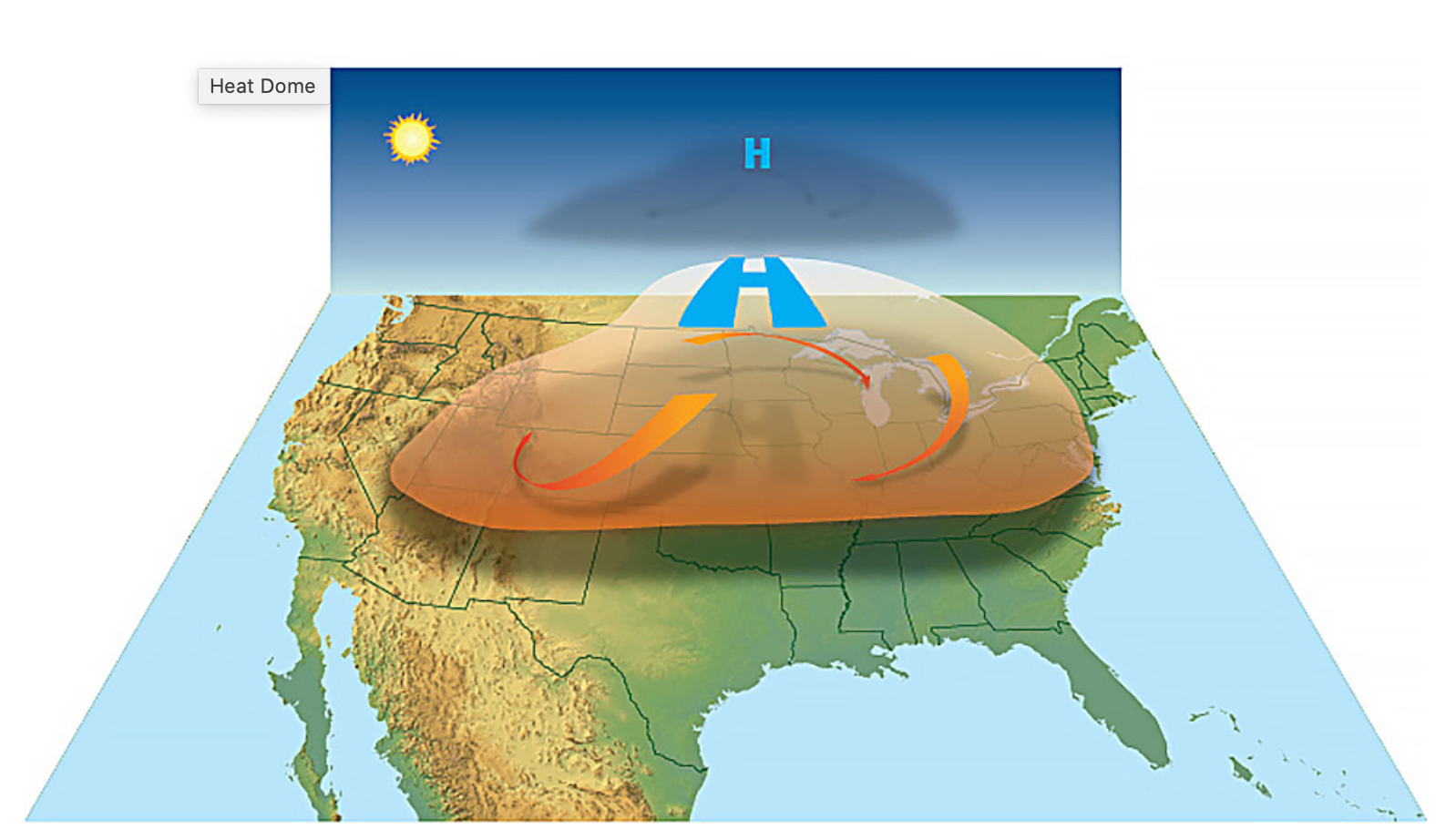What is a ‘heat dome’? Record-breaking temperatures in Canada and US causing hundreds of deaths explained
Intense concentrations of hot air trapped over North America to blame as experts warn climate crisis is exacerbating situation
Your support helps us to tell the story
From reproductive rights to climate change to Big Tech, The Independent is on the ground when the story is developing. Whether it's investigating the financials of Elon Musk's pro-Trump PAC or producing our latest documentary, 'The A Word', which shines a light on the American women fighting for reproductive rights, we know how important it is to parse out the facts from the messaging.
At such a critical moment in US history, we need reporters on the ground. Your donation allows us to keep sending journalists to speak to both sides of the story.
The Independent is trusted by Americans across the entire political spectrum. And unlike many other quality news outlets, we choose not to lock Americans out of our reporting and analysis with paywalls. We believe quality journalism should be available to everyone, paid for by those who can afford it.
Your support makes all the difference.Western Canada and the US Pacific Northwest are suffering blistering heatwaves that have already caused hundreds of deaths.
The provinces of British Columbia and Alberta are the worst affected areas in Canada, as well as parts of Saskatchewan, the Northwest Territories and the Yukon, all of which have been issued public health warnings.
The country recorded its all-time highest temperature for the third day in a row on Tuesday afternoon when the mercury hit a staggering 49C in Lytton, British Columbia, after previously reaching 47.5C on Monday and 46.6C on Sunday.
At least 486 sudden deaths were reported in the last five days in British Columbia, triple the usual rate in that period, reported the BC Coroner’s Service.
Extreme heat is also affecting the US Pacific Northwest, with more than 60 deaths in Oregon and at least another 20 in Washington State attributed to the heat wave. Seattle, Washington and Portland, Oregon, both recorded temperatures well above 37.8C this week, in cities that normally see highs of around 26.6C this time of year.
What is causing such an extreme heatwave?
Meteorologists attribute the phenomenon to a “heat dome” lingering over the affected parts of North America.
As the name suggests, a heat dome traps concentrations of hot air over areas and blocks other weather systems from moving in, leading to sweltering conditions.

The climate crisis, driven largely by decades of burning fossil fuels, is contributing to the red-hot heat and making it more intense, scientists say.
Science non-profit Climate Communication, a science non-profit, notes: “Natural variation alone cannot explain the increase in hot weather... The increase in hot weather is a direct result of climate change, and human influence is estimated to have more than doubled the likelihood of the warming trends experienced recently in virtually every region of the globe.”
Canadian prime minister Justin Trudeau underlined the impacts of the climate crisis on Wednesday, warning that such events could become the norm unless more is done to avert rising global temperatures.
“We’ve been seeing more and more of this type of extreme weather event in the past years. So realistically, we know that this heatwave won’t be the last,” he said.
That sentiment was echoed by Washington governor Jay Inslee. He told MSNBC: “This is the beginning of a permanent emergency. We have to tackle the source of this problem, which is climate change.”




Join our commenting forum
Join thought-provoking conversations, follow other Independent readers and see their replies
Comments